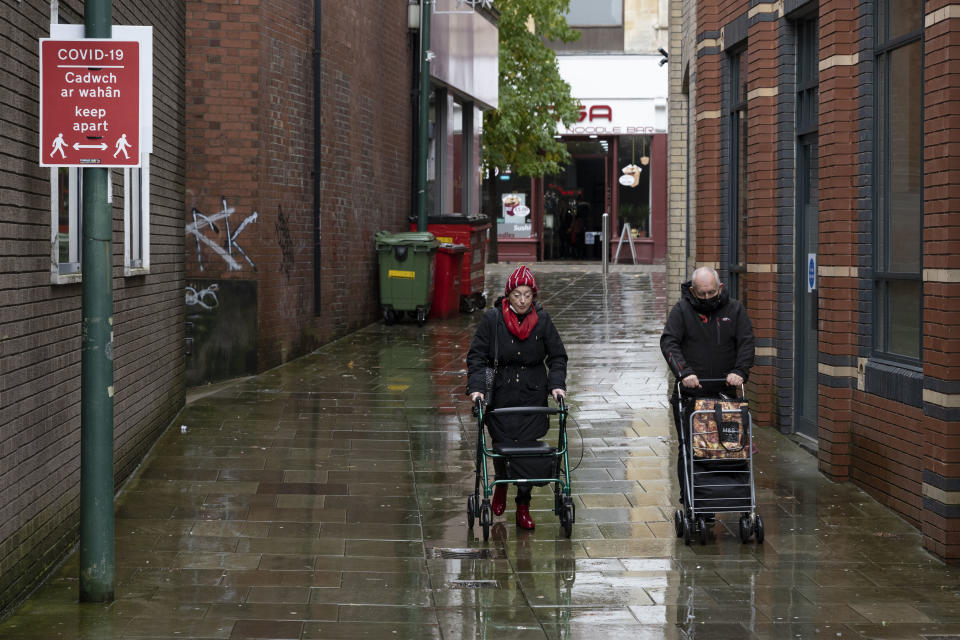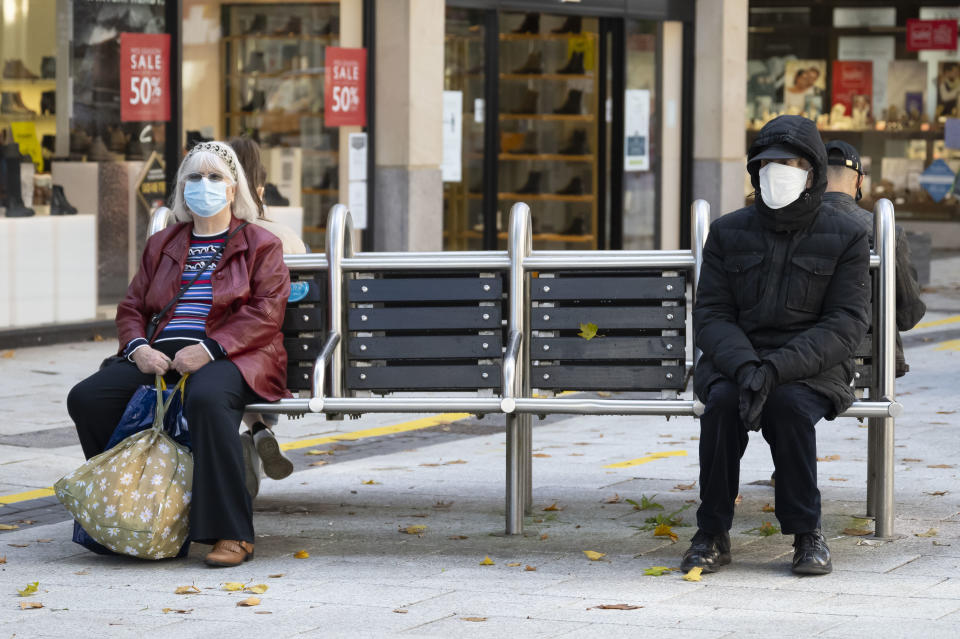Who does the government classify as 'vulnerable' and what do the new COVID rules mean for them?

Vulnerable people have been asked to stay at home and limit their contact with others as a second lockdown is set to begin in England next week.
Under the rules announced on Saturday, millions of people classed as clinically vulnerable to coronavirus will be told to take "extra precautions" but will not be formally asked to shield.
The government clarified the measures on Sunday by releasing a list of medical conditions that they believe make people especially vulnerable to COVID.
A statement on the government’s website said: “If you are clinically vulnerable you should be especially careful to follow the rules and minimise your contacts with others.
“[You] should continue to wash your hands carefully and more frequently than usual and maintain thorough cleaning of frequently touched areas in your home and/or workspace.”

The list of those classed as vulnerable includes:
People aged 60 or over (regardless of medical conditions)
People under 60 with an underlying health condition listed below (that is, anyone instructed to get a flu jab each year on medical grounds):
Those with chronic (long-term) mild to moderate respiratory diseases, such as asthma, chronic obstructive pulmonary disease (COPD), emphysema or bronchitis
Sufferers of chronic heart disease, such as heart failure
People with chronic kidney disease
People with chronic liver disease, such as hepatitis
Those with chronic neurological conditions, such as Parkinson’s disease, motor neurone disease, multiple sclerosis (MS) or cerebral palsy
Diabetes sufferers
Those with a weakened immune system as the result of certain conditions or medicines they are taking (such as steroid tablets)
People who are seriously overweight (a body mass index (BMI) of 40 or above)
Pregnant people
Other rules to be announced under the new lockdown will see pubs, bars, restaurants and non-essential retail close from Thursday for four weeks across England.
People will be allowed to exercise and socialise in public spaces outside with their household or one other person, but not indoors or in private gardens, and will be able to travel to work if they cannot work from home.
Yet unlike in the lockdown during the first wave of the pandemic, schools, colleges and nurseries will remain open.
Watch: Care home cases on the rise in Leeds
Boris Johnson said the restrictions would end on 2 December, when the government would reintroduce local restrictions based on the latest data and trends.
But cabinet office minister Michael Gove said on Sunday that the measures could be extended further into December if the infection rate is not brought under control.
Gove said it would be "foolish" to predict what would happen with the pandemic over the next four weeks, and conceded the lockdown may have to be extended.
Asked during an interview on Sky News' Sophy Ridge On Sunday whether the national lockdown could be extended, he replied: "Yes."
"We want to be in a position where we can – and I believe that this is likely to be the case – have an approach where if we bring down the rate of infection sufficiently we can reduce measures nationally and also reduce measures regionally,” Gove said.
"Because the regional approach is one that, wherever possible, we want to take because again we recognise it may be the case in the future that having reduced R below 1, having reduced national restrictions, we may see a specific upsurge in specific areas which will require specific regional measures."
Coronavirus: what happened today
Click here to sign up to the latest news and information with our daily Catch-up newsletter

 Yahoo Finance
Yahoo Finance 
